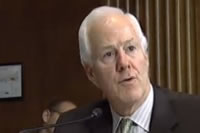 With the passage of Prop 47 in California on Tuesday, thousands of prisoners and those awaiting trial may find themselves free in the very near future. With many felonies turning to misdemeanors overnight, police, court, and prison officials are scrambling to accommodate the new changes and prepare to revisit numerous cases that require revised sentencing.
With the passage of Prop 47 in California on Tuesday, thousands of prisoners and those awaiting trial may find themselves free in the very near future. With many felonies turning to misdemeanors overnight, police, court, and prison officials are scrambling to accommodate the new changes and prepare to revisit numerous cases that require revised sentencing.
The greatest effect will be on drug charges, with California becoming the first state in the nation to downgrade such offenses. One worry within the system is that the former practice of offering reduced sentencing in exchange for completion of drug rehabilitation charges is now not an option, and many are worried that offenders will not get the treatment they need.
For more information on the Prop 47 transition, read on at latimes.com![]()

 “Have you ever been convicted of a crime?” For an ever-increasing number of Americans, this question is often the end of the line when filling out job applications. This past summer, the Washington, D.C. City Council passed a measure that forbids asking about prior convictions on most job applications, a move that several other states are considering.
“Have you ever been convicted of a crime?” For an ever-increasing number of Americans, this question is often the end of the line when filling out job applications. This past summer, the Washington, D.C. City Council passed a measure that forbids asking about prior convictions on most job applications, a move that several other states are considering. At least one in three children in the juvenile justice system is reported to be suffering from a disability, ranging from emotional disability like bipolar disorder to learning disabilities like dyslexia, with some researchers claiming this number is as high as seventy percent.
At least one in three children in the juvenile justice system is reported to be suffering from a disability, ranging from emotional disability like bipolar disorder to learning disabilities like dyslexia, with some researchers claiming this number is as high as seventy percent. In this video interview from Yahoo! News, United States Attorney General Eric Holder speaks with Katie Couric talks about the trend of disproportionately longer sentences for African-American and Hispanic inmates and how he feels it is a civil rights issue.
In this video interview from Yahoo! News, United States Attorney General Eric Holder speaks with Katie Couric talks about the trend of disproportionately longer sentences for African-American and Hispanic inmates and how he feels it is a civil rights issue. Speaking in front of a group of community leaders including mayors and law enforcement officials, former president Bill Clinton named prison reform as one of, if not the, hot-button issue in the 2016 political races. Meeting on the 20th anniversary of Clinton’s 1994 bill that enabled community policing to assist and partially supplant local law enforcement, he described what he feels is wrong with today’s prisons:
Speaking in front of a group of community leaders including mayors and law enforcement officials, former president Bill Clinton named prison reform as one of, if not the, hot-button issue in the 2016 political races. Meeting on the 20th anniversary of Clinton’s 1994 bill that enabled community policing to assist and partially supplant local law enforcement, he described what he feels is wrong with today’s prisons: The short answer? Thousands of dollars in campaign contributions. The governors of both Idaho and California have both taken years of campaign donations from private prison contractors in their respective states; in both cases, the contractors in question have earned lucrative contracts or favorable negotiations in 2014 alone.
The short answer? Thousands of dollars in campaign contributions. The governors of both Idaho and California have both taken years of campaign donations from private prison contractors in their respective states; in both cases, the contractors in question have earned lucrative contracts or favorable negotiations in 2014 alone. Georgia’s Governor Nathan Deal believes the state can succeed in reforming public education, just as the state has succeeded in prison reform, and that the two have a deep connection to each other. Speaking in front of the Georgia School Superintendents Association, he discussed the legislation designed to reform prisons that has easily passed in the last three years, and how true prison reform begins in the state’s public schools.
Georgia’s Governor Nathan Deal believes the state can succeed in reforming public education, just as the state has succeeded in prison reform, and that the two have a deep connection to each other. Speaking in front of the Georgia School Superintendents Association, he discussed the legislation designed to reform prisons that has easily passed in the last three years, and how true prison reform begins in the state’s public schools. B. Wayne Hughes Jr., a conservative multimillionaire who spent years working with Karl Rove to elect Republican candidates, could end up being one of the deciding factors in the vote for California’s Proposition 47, which would lower the status of many non-violent crimes from felonies to misdemeanors, keeping thousands of offenders from serving time behind bars. The businessman has donated 1.255 million dollars to help promote the bill, after a chance meeting coupled with governmental disillusionment led Hughes to discover the work of prison ministries across the country. He explains:
B. Wayne Hughes Jr., a conservative multimillionaire who spent years working with Karl Rove to elect Republican candidates, could end up being one of the deciding factors in the vote for California’s Proposition 47, which would lower the status of many non-violent crimes from felonies to misdemeanors, keeping thousands of offenders from serving time behind bars. The businessman has donated 1.255 million dollars to help promote the bill, after a chance meeting coupled with governmental disillusionment led Hughes to discover the work of prison ministries across the country. He explains: A lawsuit filed in Meade County, Kentucky claims that a candidate for Clerk is a convicted felon and therefore should not be allowed to run or be elected to the position.
A lawsuit filed in Meade County, Kentucky claims that a candidate for Clerk is a convicted felon and therefore should not be allowed to run or be elected to the position. The Senate Judiciary Committee’s approval of the reauthorization of the Second Chance Act marked the first hurdle passed as far as keeping this landmark bill alive. Enacted in 2008, experts have labeled the Second Chance Act a key contributor to states’ recent progress toward reducing recidivism by providing funding for many programs for inmates and released prisoners including mentoring, substance abuse, employment, and education.
The Senate Judiciary Committee’s approval of the reauthorization of the Second Chance Act marked the first hurdle passed as far as keeping this landmark bill alive. Enacted in 2008, experts have labeled the Second Chance Act a key contributor to states’ recent progress toward reducing recidivism by providing funding for many programs for inmates and released prisoners including mentoring, substance abuse, employment, and education.